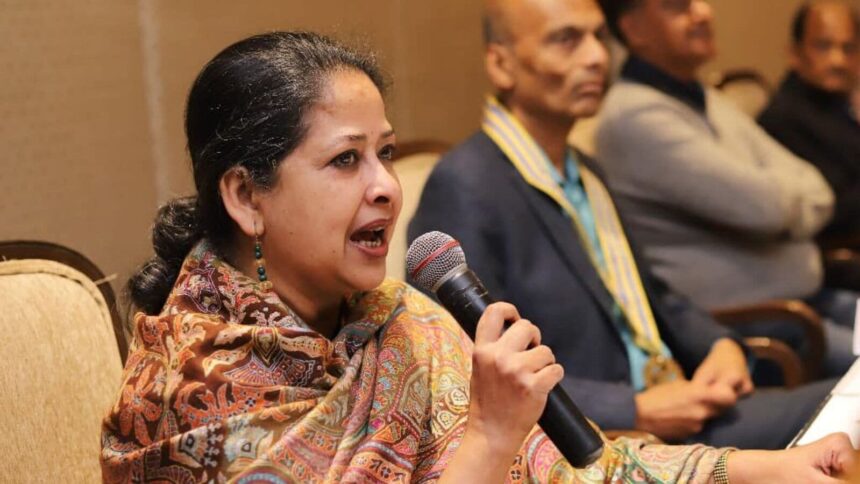The Mukherjee Family Feud: Politics, Memorials, and Lasting Legacies
Background
The recent passing of former Prime Minister Manmohan Singh has ignited a fierce debate within the Indian political sphere, particularly among the Mukherjee family. Sharmistha Mukherjee, daughter of former President Pranab Mukherjee, has publicly criticized the Congress party and its leader, Rahul Gandhi, highlighting a perceived lack of respect towards her father’s legacy and the legacy of Manmohan Singh, who passed away on December 27 at the age of 92.
Sharmistha’s Critique of the Congress Party
In a series of posts on social media platform X (formerly known as Twitter), Sharmistha expressed her discontent regarding the Congress Working Committee’s (CWC) failure to convene for a condolence meeting after her father’s death. She suggested that such an oversight was not only disrespectful but also contradictory to the party’s past actions. Sharmistha pointed out that a condolence meeting was held following the death of former President K. R. Narayanan, contradicting claims made to her that such meetings are unnecessary for presidents.
She also took aim at Rahul Gandhi, questioning his credibility when followers of his party label her father as "sanghi" (a term associated with Hindu nationalism) while he himself once embraced Prime Minister Narendra Modi in Parliament, despite Gandhiji’s mother referring to Modi as “maut ka saudagar” (merchant of death).
The Call for a Memorial
Following the controversy surrounding Singh’s death and the subsequent calls for a memorial, Sharmistha has advocated for not only a fitting memorial for Singh but also the posthumous conferment of the Bharat Ratna, India’s highest civilian award. Despite her criticisms of the Congress party, she expressed a desire to honor Singh’s legacy and contributions to the nation.
Family Dynamics: Sharmistha vs. Abhijit Mukherjee
The tension escalates further with Sharmistha’s remarks directed at her brother, Abhijit Mukherjee, who defended the Congress party’s handling of their father’s passing by attributing the lack of meetings and gatherings to the COVID-19 pandemic restrictions at the time. Sharmistha, however, was unyielding in her stance, referring to her brother’s intentions as shameful, especially in light of the perceived attacks against their father by Congress supporters. Her comments, "Shame is on the person who, for some petty crumbs, wants to rejoin a party whose followers abuse his father day-in & day-out in the most vilest manner," underscored the deep emotional and ideological rift between the siblings.
The Political Landscape
The discord within the Mukherjee family is emblematic of broader issues within Indian politics, particularly the internal struggles of long-standing political families and the shifting allegiances within parties. Sharmistha, who quit active politics in 2021, has now become a vocal critic of the party her father once honored and served.
The implications of this feud extend beyond personal grievances—a spotlight is thrown on the Congress party’s current state and its relationship with prominent political figures, particularly those with familial ties to its past leadership. The legacy of Pranab Mukherjee and Manmohan Singh remains central to ongoing discussions on leadership, respect, and recognition in Indian politics.
Conclusion
As Sharmistha Mukherjee continues her critique and seeks recognition for Singh and her late father, the challenges of political legacies, familial dynamics, and party responsibilities come to the fore. This saga not only highlights the individual struggles of a family but also reflects larger narratives of political identity and historical acknowledgment in India. As the country processes the passing of a respected leader like Manmohan Singh, it must also confront the lessons learned from these emerging familial and political clashes.










